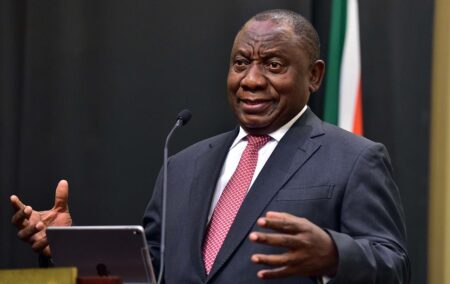Race-based empowerment measures are essential because South Africa’s wealth ‘remains largely in the hands of a predominantly white and male minority’, according to President Cyril Ramaphosa.
He said in his 26 June address on the 65th anniversary of the signing of the Freedom Charter that while the charter ‘is clear that South Africa belongs to all who live in it, black and white’, it was ‘undeniable that the wealth of this country remains largely in the hands of a predominantly white and male minority’ and that the ‘structure of our economy continues to exclude overwhelming numbers of the poor and Black majority’.
For this reason, he said, the ‘laws and measures we put in place to advance people from historically disadvantaged groups remain necessary to this day. The systemic faultlines (sic) created by our Apartheid past are still with us and still inhibit the advancement of those who were previously discriminated against’.
Ramaphosa said: ‘The destruction and deprivation caused by our apartheid past further necessitates the strengthening of our laws aimed at positively affirming and advancing the economic inclusion of black people.
‘As I said in Parliament last week, Black Economic Empowerment measures are here to stay. We need to review BEE laws and programmes to ensure they are properly targeted and broaden the reach of these programmes.’
He added: ‘Unfortunately, South Africa and the world are seeing a rise in racism, discrimination based on ethnicity and narrow nationalism. It is for this reason that the ANC and the Alliance has embarked on a campaign against racism. We must embark on concerted campaigns to root out racism across our country.’
IRR analysts point out that while Ramaphosa continues to highlight wealth disparities in racial terms, his government remains committed to policies – such as expropriation without compensation and race-based empowerment measures – which undermine the investment and job creation that are the only assured means for the poor, mostly black, majority of South Africans to escape poverty.

